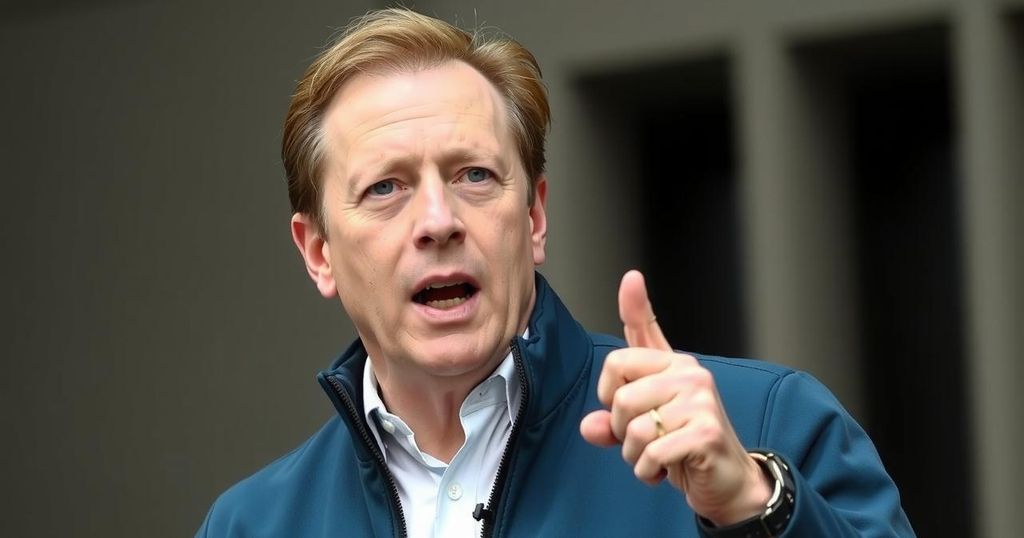Elon Musk’s Controversial Support for Germany’s AfD Party Sparks Outrage
Elon Musk has publicly supported Germany’s far-right AfD in an op-ed for Welt am Sonntag, describing it as the key to saving the nation from economic decline. His claims have ignited a political backlash, leading to protests within the media and criticism from leading political figures in Germany. The situation raises significant issues regarding media responsibility and foreign influence on national politics.
Elon Musk, the prominent US tech billionaire, recently reaffirmed his support for Germany’s far-right political party, the Alternative for Germany (AfD), through an op-ed published in the Welt am Sonntag newspaper. Musk characterized the AfD as “the last spark of hope for the country,” asserting that it is the only party capable of rescuing Germany from what he perceived as impending economic and cultural collapse. He defended the party against accusations of extremism by highlighting its leadership diversity and advocating for its proposed economic policies, such as reducing government regulation and taxes.
The release of Musk’s op-ed sparked significant backlash within the German media landscape, notably resulting in protests from the editorial staff of Welt and the resignation of a senior editor. Politicians across Germany responded critically, with Friedrich Merz, the center-right candidate for chancellor, condemning Musk’s commentary as an unwarranted intrusion. Lars Klingbeil, the leader of the Social Democrats, likened Musk’s influence to that of authoritarian figures, claiming he aims to manipulate Germany’s democratic processes by promoting the AfD’s agenda.
In the broader context of German politics, the Alternative for Germany (AfD) party has gained considerable traction, currently polling at around 20% and positioned second behind the conservative alliance led by the Christian Democratic Union (CDU) and the Christian Social Union (CSU). The party’s rise has provoked sharp criticism and concern among mainstream political figures, who fear its populist rhetoric undermines democratic values. Press freedom in Germany permits the expression of political opinions, although this is relatively rare, as exemplified by the controversy surrounding Musk’s article. The op-ed’s publication prompted discussions about the responsibilities of the media and the boundaries of political expression.
This incident highlights the intersection of global politics and local narratives, demonstrating how influential figures like Elon Musk can impact political discourse in other countries. Musk’s backing of the AfD raises critical questions regarding the role of foreign individuals in domestic electoral matters and the implications of endorsing far-right ideologies. The backlash from political leaders and the media underscores the contentious nature of political endorsements and the potential consequences for democracy.
Original Source: www.dw.com




Post Comment